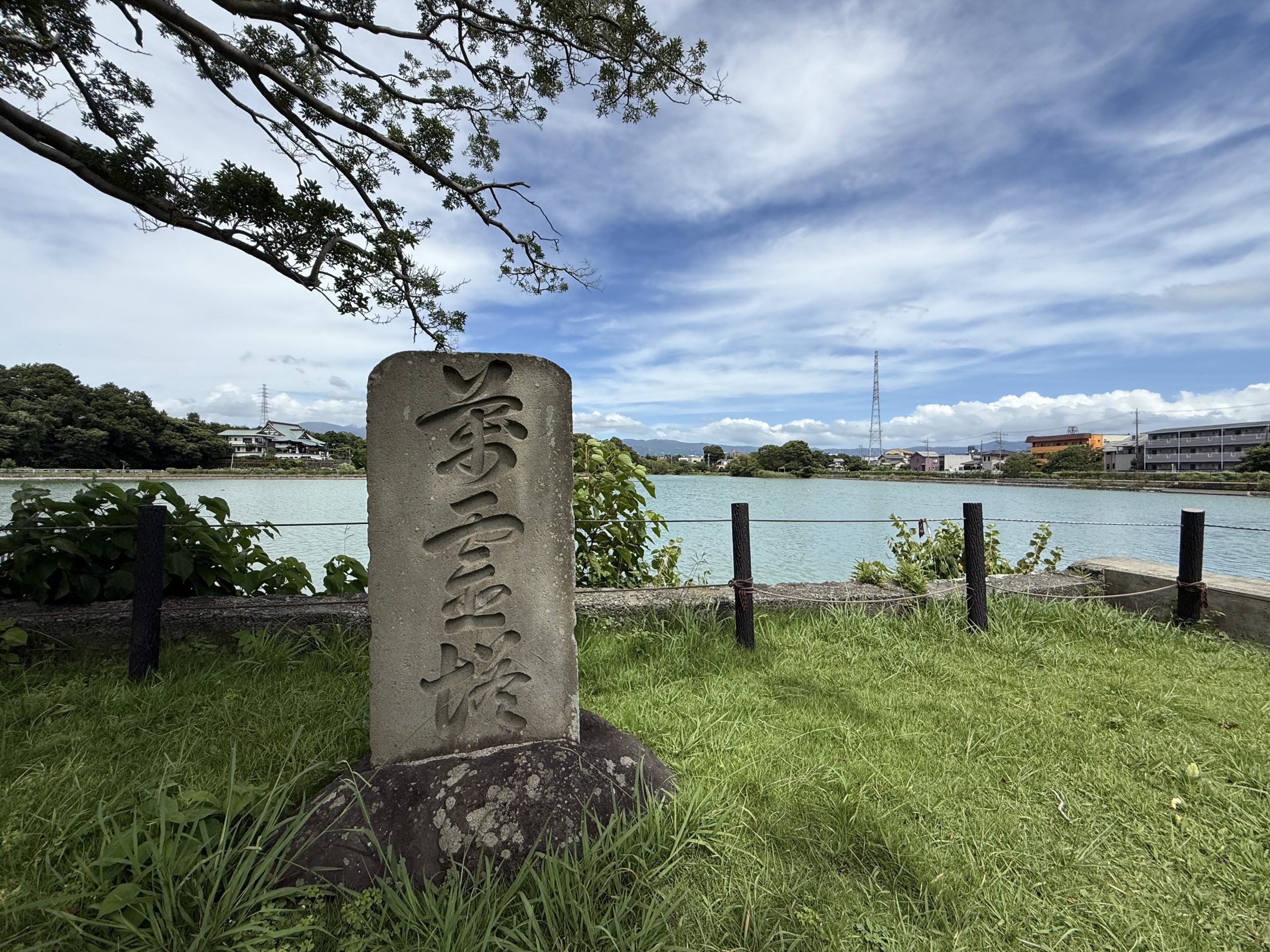第69回 やっぱりもっと伝えなきゃ
There is an English translation at the bottom of this article. It’s a little bit long, however, please read it when you have time
8月2日、近くの門池で水難事故が起こり、高校生2人が亡くなられました。
朝、お祭りを楽しみに元気に出かけていった子どもを送り出した親御さん。事故に居合わせた友人たちのことを思うと、本当に居たたまれません。
空いた時間に門池へ立ち寄り、お経をあげていますが、日中は人もまばらです。
「猛暑だからかなぁ」とぼんやり思いながらお経を続けていると、急に水面がゆらぎました。視線を向けると、花束が浮かんでいます。
よく見ると、それは周囲の野花を集めた花束でした。しばらく漂ったあと、ゆっくりと水中へ沈んでいきました。
この間、2分にも満たなかったと思いますが、ずいぶん長く感じられました。
本当は、遠くを歩いていた二人組が、私の祈る姿を見て急遽花を摘み、もっと離れた横の方からそっと浮かべてくださったのだと思います。
けれど私には、それが真上の空からゆっくりと降ってきたように感じられ、光とともに添えられたように思えたのです。
──同じようには、もう二度と感じられないだろうな。
そう思った瞬間、言葉にすること、態度にして伝え続けることの責任を受け取った気がしました。
何を、どう捉え、どう伝え続けていけばいいのだろう。
「お経が大切」「ご先祖さまを大事に」──もちろんそうです。
でも、まずはその手前から。
地域の方々に守られ、お檀家さんやご縁のある方々から多くを教わり、ようやく今の自分と環境があります。
それを誤って、「自分が偉いから」「賢いから」「僧侶だから」などと思ってしまったら、もうおしまいなんですよね。
それを踏まえたうえで、正直に、何を伝えられるだろうか。
日蓮聖人は、南無妙法蓮華経のお題目についてこう記されています。
「聖人の唱させ給題目の功徳と、我等が唱へ申題目の功徳と、何程の多少候べきやと…更に勝劣あるべからず候」
──誰が唱えても、勝劣はないのだと。
一緒にお経を唱えたり、お供えを続けても、悲しみはなかなか消えません。
悩みや苦しみを一瞬で消し去ることもできません。
人間誰しも、「早く終わってほしい」と思う日もあれば、「もっとこの時間を大切にしたい」と願う日もあるものです。
そして、知らんぷりな人もいれば、どこかで見守ってくれている人もいる。
だからこそ、より人間らしく、近くにいるただの一人として、見聞きし、笑い、悲しみます。
どうぞご遠慮なく、私にお話をお聞かせください。
No. 69: I Need to Share More
On August 2nd, a drowning accident occurred at nearby Kadoike Pond, resulting in the deaths of two high school students.
The parents had sent their children off in the morning, excitedly looking forward to the festival. Thinking about the friends who were present at the accident is truly heartbreaking.
I stop by Kadoike Pond in my spare time to chant sutras, but there are few people there during the day.
As I continued chanting, absentmindedly wondering if it was because of the intense heat, the water’s surface suddenly began to ripple. I looked over and saw a bouquet of flowers floating.
Looking more closely, I saw that it was a bouquet of wildflowers from the surrounding area. After floating for a while, it slowly sank back into the water.
It probably lasted less than two minutes, but it felt much longer.
I believe a pair of people walking nearby saw me praying, quickly picked some flowers, and gently floated them down from a distance to my side.
But to me, it felt as if it were slowly falling from the sky directly above, accompanied by light.
–I’ll never feel the same way again.
The moment I thought this, I felt like I had accepted the responsibility to continue to convey this message, putting it into words and through my actions.
What should I understand, how should I understand it, and how should I continue to convey it?
“The sutras are important” and “Cherish your ancestors” — of course.
But first, I need to start from what I learned from the local community, parishioners, and other people with whom I have connections, and it’s only through the protection of the people in my community and the learning I’ve received that I have finally become who I am and in the environment I live in today.
If I mistakenly think that it’s because “I’m great,” “I’m smart,” or “I’m a monk,” then it’s all over.
With that in mind, what can I honestly convey?
Nichiren Shonin wrote the following about the daimoku of Nam-myoho-renge-kyo:
“How much merit can there be between the chanting of the sutras offered by the saints and the chanting of the sutras we offer? There is no greater or lesser merit.”
–No matter who chants, there is no greater or lesser merit.
Even if we chant sutras together or continue to make offerings, sadness does not disappear easily.
Worries and suffering cannot be erased in an instant.
Everyone has days when they wish it would end quickly, and days when they wish they could cherish this time even more.
And while some people ignore us, others are watching over us from somewhere.
That is why we see, hear, laugh, and grieve more like human beings, as just another person close to us.
Please feel free to tell me your story.
—